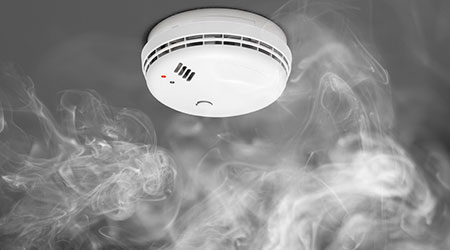Q: Do you have to have smoke detectors in emergency electrical rooms or electrical rooms?
A: In a hospital? Only if you have an FSES equivalency that requires it, or the room is located inside area under Specialized Protective Measure locks as described in section 19.2.2.2.5.2 of the 2012 LSC. Otherwise, there are no NFPA codes or standards that require it. But check with your state and local authorities to see if they have regulations that require it.
Often times smoke detectors are placed in locations based on designer preference.
Brad Keyes, CHSP, is the owner of KEYES Life Safety Compliance, and his expertise is in the management of the Life Safety Program, including the Environment of Care and Emergency Management programs.

 Mature Dry Surface Biofilm Presents a Problem for Candida Auris
Mature Dry Surface Biofilm Presents a Problem for Candida Auris Sutter Health's Arden Care Center Officially Opens
Sutter Health's Arden Care Center Officially Opens Insight Hospital and Medical Center Falls to Data Breach
Insight Hospital and Medical Center Falls to Data Breach The High Cost of Healthcare Violence
The High Cost of Healthcare Violence EVS Teams Can Improve Patient Experience in Emergency Departments
EVS Teams Can Improve Patient Experience in Emergency Departments